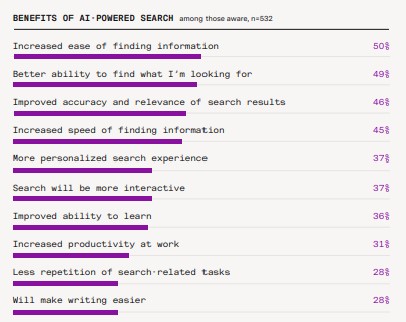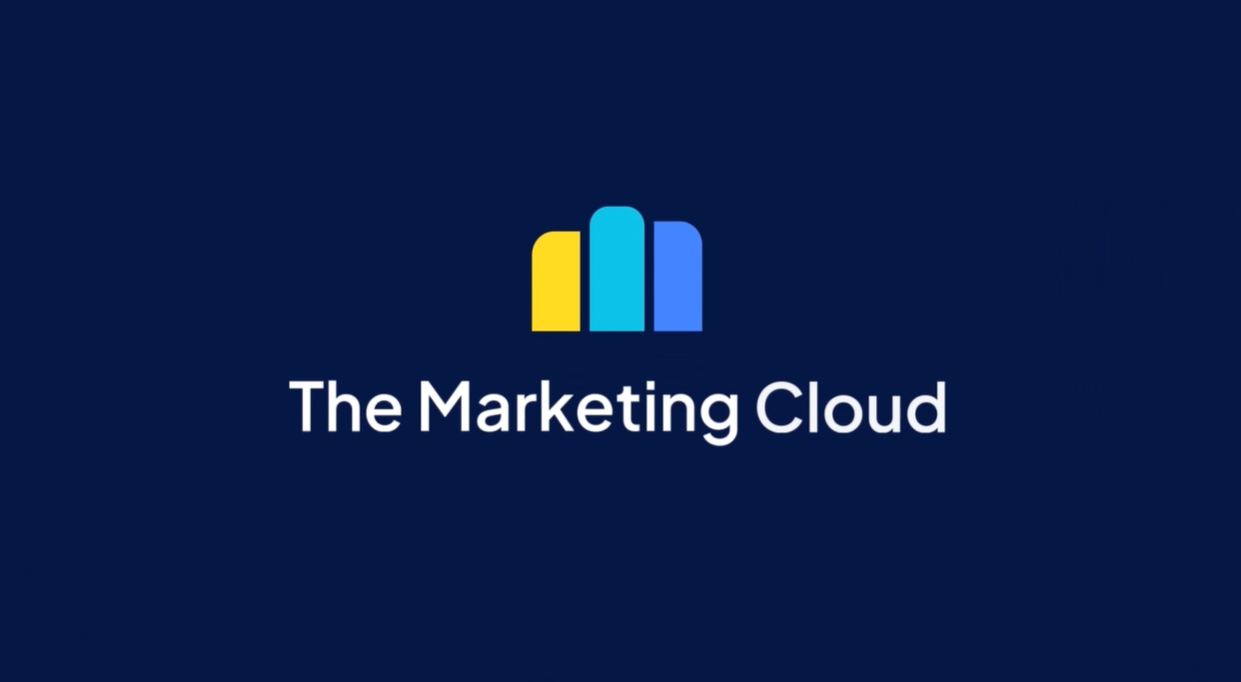Artificial Intelligence
Conversational AI: A Voyage Across the Uncanny Valley
By
National Research Group
CONTACT
nick.crofoot@nrgmr.com
SIGN UP FOR OUR INSIGHTS BLASTS
A new battlefront in the Tech Wars heated up last week with Microsoft’s announcement and hands-on demo of new AI capabilities in its Bing search engine and Edge browser. Google quickly followed suit by announcing its own conversational AI in a blog post on Monday and at an event in Paris later in the week. This all comes on the heels of ChatGPT’s launch late last year, which eclipsed 1M users in 5 days and 100M in less than two months.
With all the buzz, we wanted to take a pulse on public opinion and understanding of this emergent technology, so we surveyed 1,000 US Consumers on Tuesday this week. Here’s what we found…
NEWS STILL BREAKING THROUGH
While last week felt like a whirlwind of announcements and media coverage, it’s important to keep in mind that news about AI-powered search is only just beginning to break through to the masses. 17% of those we surveyed said they had heard a “great deal” about AI-powered search recently, and 53% had heard at least “some.” That’s not bad one week in, but there’s a long way to go before companies build mainstream familiarity and understanding of the technology.
DON’T COUNT GOOGLE OUT
Last week did not go as well as Google likely hoped with many headlines focusing on Bard’s inaccurate assertion that the Webb Space Telescope was the first to capture images of an exoplanet and a tepid media response to the event in Paris. But one week’s headlines will not determine the long-term trajectory of who wins the race.

SO WHO HAS THE EDGE?
Disruptor or incumbent? Microsoft certainly has taken the initiative, having released a functional product that is already available to beta testers (and a lengthy waitlist to gain access). They also plan on investing $10 billion into OpenAI. Google is the overwhelming incumbent in the search space, commands vast resources, and has assembled a formidable team that has been working on this technology for many years. The public appears to be favoring Google’s incumbency at this stage.
59% of those who have heard about AI-powered search say Google is best positioned to successfully deliver the technology to market …compared to 13% for Microsoft
Time will tell how much that shifts in the coming weeks and months as familiarity with the companies’ offerings deepens, and more users get their hands on the technology.
Looking forward, consumer excitement is palpable
A lot remains to be seen, but consumer excitement for the technology is building.
71% of those who have heard about AI-powered search say they’re excited about using the technology and 92% say they believe it will change the way people use the Internet. Why? Improved ease and speed of finding information and improved accuracy and relevance of search results are the key benefits driving their excitement.

IMPLICATIONS
As we look ahead, a few thoughts on how this will play out from here…
Finding the Early Adopters
Which companies will effectively find the segments of the population that drive early adoption and help their products cross the chasm? Our data points to the usual suspects as early adopters: Younger consumers (ages 18-34) who skew male, those working full time (who perhaps see workrelated applications/benefits), and more affluent and educated consumers.
Managing Expectations
The potential for conversational AI is clear, but as we’ve already seen, it’s still a work in progress. The process of “deep reinforcement learning” that drives applications like ChatGPT will take time to mature and there will be missteps and inaccurate results in the interim. Continual improvements in accuracy while managing consumer expectations will be important to mass adoption.
Achieving Product-Market Fit
In addition to generating excitement and driving trial, products will need to identify the Jobs to Be Done that will have staying power. With seemingly limitless applications for AI-powered search, what jobs can the technology do for users that deliver the most real, sustained utility? Keying in on these use cases and building products that are optimized for these needs will be critical to gaining a competitive advantage.
Monetization
Even new technologies that find the early adopters and achieve productmarket fit aren’t guaranteed a sustainable path forward—think of AI-powered voice assistants, which have achieved widespread adoption, yet struggled mightily to monetize. How will companies effectively monetize conversational AI? Will they follow the ad-supported playbook that Google has mastered? What subscription- based models will emerge?
Bringing AI into the Light
Now that AI is maturing across a new threshold, and as ChatGPT, Bing and Bard bring multidimensional algorithms forward in a radically new way, there may be an opportunity to incorporate a new level of transparency, education, and understanding of all AI, including existing algorithms that are already deeply interwoven into daily life. This may happen organically, as new AI are introduced; perhaps there is also an opportunity to create distinct and meaningful AI personas for existing tools, with inherent consumer choice built into the experience.
Proceeding Responsibly
There’s been much written about the unintended consequences and potential abuses of AI. Ambiguous and misleading answers, the expression of embedded bias, and the propagation of ideological filter bubbles are all concerns. Conversational AI will almost certainly be a proving ground for the extensive work that Microsoft, Google, and others have put in to anticipate consequences and safeguard against abuses. Close partnership between companies, their users, third parties, and regulatory bodies to ensure a responsible approach will be essential to maximizing the potential benefits of this new technology.
Want to learn more?
Contact Nick.Crofoot@nrgmr.com
Related
Articles
Artificial Intelligence, In the News, Marketing Frontiers, Press Releases, Stagwell Marketing Cloud, Tech
Jun 12, 2025
PRophet, a Stagwell (STGW) Company, Completes Integration of UNICEPTA, Launches Unified Brand and Enhanced Media Intelligence Offering

In the News, Marketing Frontiers, Press Releases, Stagwell Marketing Cloud, Tech
Jun 11, 2025
The Marketing Cloud Launches Cutting-Edge Platform to Simplify Marketing Workflows

In the News, Press Releases, Thought Leadership
Jun 10, 2025
Stagwell (STGW) Chairman and CEO Mark Penn to Discuss the Irreplaceable Power of Human Creativity on the Main Stage of Cannes Lions





